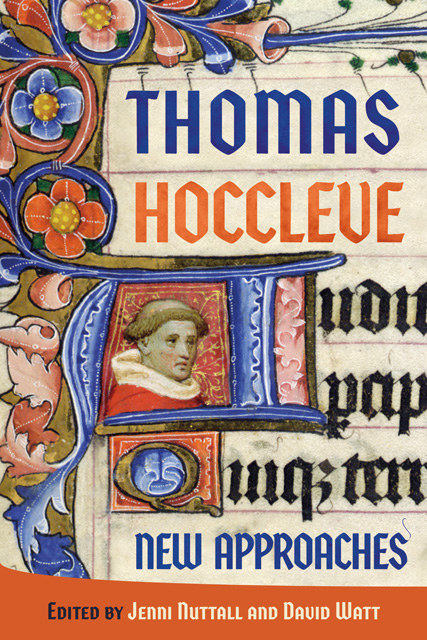8 - Hoccleve’s Formulary and the Matter of Everyday Life
Published online by Cambridge University Press: 11 January 2023
Summary
Roland Barthes once argued that literary realism arises when a writer includes within his text certain trivial details and mundane events, not to denote an extratextual reality, but to connote its intratextual illusion. But is this the only kind of realism that a literary text may project? The work of Thomas Hoccleve offers us an occasion to revisit this question. For more than forty years, critics have struggled to reconcile the realistic aspects of Hoccleve’s work – its eye for detail, its concern with local place, and its autobiographical elements – with its resistance to the kind of realism that Barthes describes. Again and again, Hoccleve’s poems produce the illusion of the real within the diegesis of their textual frames, only to break that diegesis by calling attention, repeatedly, to the material things, actual persons, and historical places that lie beyond its scope. J. A. Burrow says it best, perhaps, when he claims that Hoccleve is interested less in the construction of ‘imaginary worlds’ within his texts than with the realistic evocation of what lies beyond them, ‘the non-imaginary worlds of public and private life’. In Burrow’s view, Hoccleve may be a realist, hear a knock upon his door, we can assume that someone is really there. This essay extends Burrow’s argument in two ways. First, it suggests that Hoccleve’s peculiar style of realism may have been inspired by the specific kinds of reading and writing he did at the office of the Privy Seal, where he worked as a clerk for more than forty years. The depictions of reality found in the documents that Hoccleve copied out bear a striking resemblance, as we will see, to the picture of late medieval life that he gives us in the poems: quotidian, exacting in detail, and full of local colour. Second, it argues that our best guide to the influence of the Privy Seal upon Hoccleve can be found in a book that is often discussed but little read. This is the Formulary, a massive collection of more than eleven hundred writs, grants, letters patent, and extracts that the poet assembled between 1423 and 1426, at the very end of his bureaucratic career. Because it is a compilation of templates intended to ease the writing of new documents by future Privy Seal clerks, the Formulary appears at first to be an anonymous and impersonal text.
- Type
- Chapter
- Information
- Thomas Hoccleve New Approaches , pp. 167 - 196Publisher: Boydell & BrewerPrint publication year: 2022



